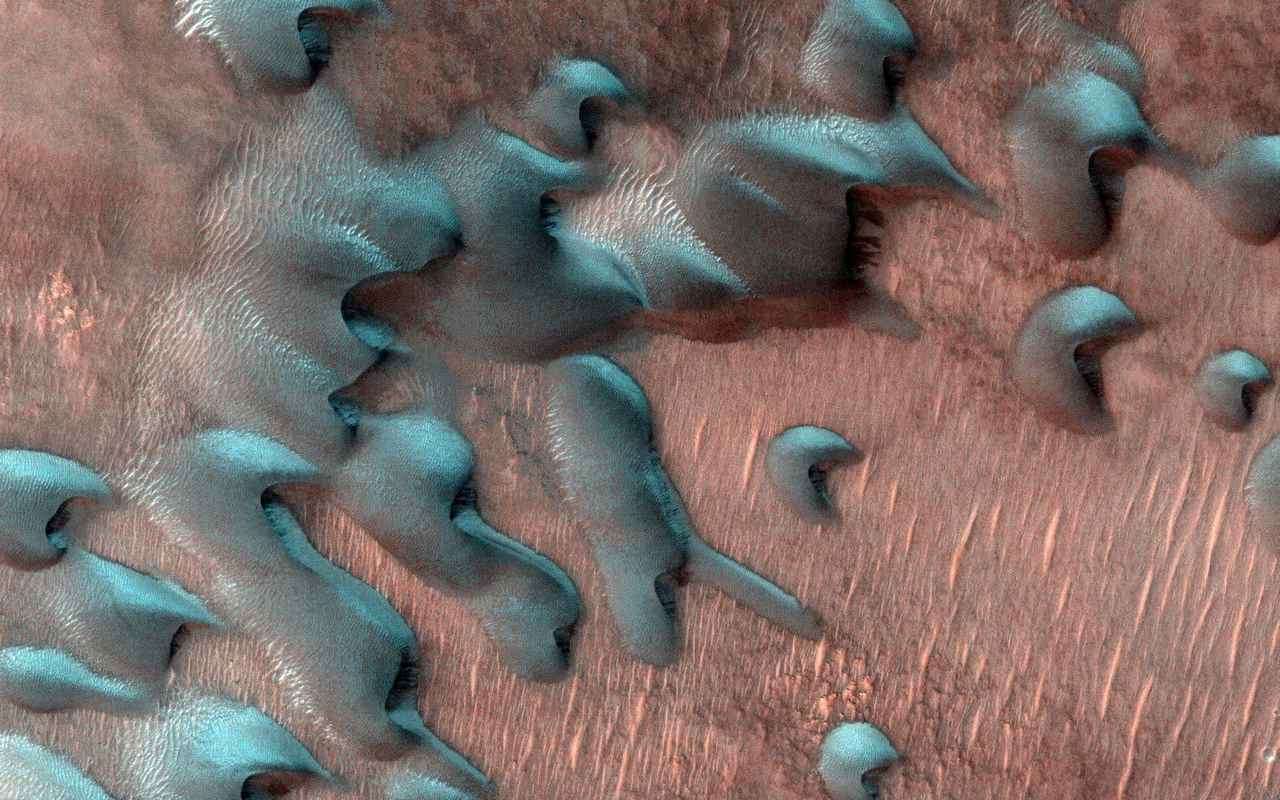Regenerative Medicine Breakthrough: Cellular 'Glue' Heals Wounds, Potentially Regrows Nerves and Tissue
A kind of glue but for cells may seem like science fiction, but in the not too distant future the UCSF may claim credit for the discovery.

Fascinating images have been released that show a winter wonderland on Mars of cube-shaped snow, icy landscapes, and frost.
It's not any winter wonderland in which you'd like to be walking, as the snapshots of the landscape reveal temperatures of -123°C.
The photos of Mars' coldest season were taken by the HiRISE (High Resolution Imaging Science Experiment) camera onboard the Mars Reconnaissance Orbiter.
NASA explains that the most "fabulous" discovery comes at the end of winter, when all the ice that built up begins to "thaw" and sublimate into the atmosphere. As it does so, this ice takes on bizarre and beautiful shapes.
"When winter comes to Mars, the surface is transformed into a truly otherworldly holiday scene. Snow, ice, and frost accompany the season's sub-zero temperatures. Some of the coldest of these occur at the planet's poles," NASA wrote in an image release.
"Cold as it is, don't expect snow drifts worthy of the Rocky Mountains. No region of Mars gets more than a few feet of snow, most of which falls over extremely flat areas. And the Red Planet's elliptical orbit means it takes many more months for winter to come around: a single Mars year is around two Earth years."
The Mars "thawing" causes geysers to erupt where translucent ice allows sunlight to heat up gas underneath it, and that gas eventually bursts out, sending fans of dust onto the surface.
Scientists have begun to study these fans as a way to learn more about which way Martian winds are blowing.
The Mars Reconnaissance Orbiter has been orbiting and studying Mars since 2006.
The spacecraft is designed to study the geology and climate of Mars, provide reconnaissance of future landing sites, and relay data from surface missions back to Earth.
WATCH NASA Explain it Below…
SHARE This Beautiful Martian Snowscape With Your Space-Loving Friends…
Be the first to comment